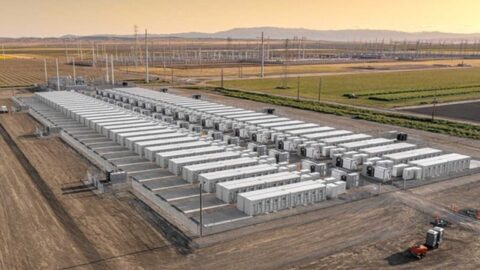Another outpouring of support for California’s cap-and-trade regulation
 With only two and a half months remaining until North America’s largest carbon market goes “live,” it’s no surprise that economic experts from around the nation are standing up and voicing support for California’s program. Just last weekend, 56 economists from both in-state and out-of-state academic institutions, and some NGOs, sent a letter to Governor Brown commending him for his leadership and recommending the state move forward with the planned auction component of cap-and-trade.
With only two and a half months remaining until North America’s largest carbon market goes “live,” it’s no surprise that economic experts from around the nation are standing up and voicing support for California’s program. Just last weekend, 56 economists from both in-state and out-of-state academic institutions, and some NGOs, sent a letter to Governor Brown commending him for his leadership and recommending the state move forward with the planned auction component of cap-and-trade.
The Air Resources Board’s currently adopted regulation distributes most allowances for free, but does auction some as well, thus taking into consideration the needs of both California consumers and California businesses. In the first two years of the program, businesses will receive approximately 90% of allowances for free. After that, the amount auctioned increases, though CARB has committed to continuing to study this option to protect businesses from foreign competition.
In the letter, economists from 34 different colleges and universities, along with several from NGOs and think tank organizations, reiterated an important point: regardless of whether emissions permits are sold or given away for free, regulated businesses are likely going to pass through costs and change the price of the products they sell. And, while it might be appropriate to give some allowances away to protect businesses from foreign competition, polluters should not be able to profit from the program without making real reductions. It’s also important, the economists noted, to preserve the state’s ability to put the revenue to beneficial use cutting climate change pollution.
The legislature, the governor’s office, and many stakeholders, including EDF, have been considering what beneficial uses of proceeds from the allowance auction might look like. EDF’s report Invest to Grow covers this subject in detail.
State law already requires that the money from the auction be spent in ways that further the purpose of AB 32 – cutting climate change pollution – and there are many opportunities within that constraint. Further, the budget passed by the Legislature and signed by the governor in July calls for a large portion of proceeds to relieve pressure on the state’s much strained budget. Several other bills are also being considered in this final week of the legislative session that aim to address priorities and guidelines for auction revenue investments.
EDF will continue to explore the win-win opportunities that auction proceeds creates in more depth with a series of upcoming blog posts.













